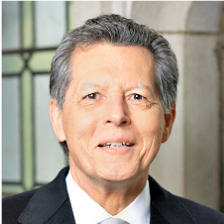
religion
economics
Are Christianity and Capitalism Compatible?
0
0
Genesis
Response
Penultimate
Finale
April 6th, 2020
David French refashions, in compelling fashion, the classic Whig argument for a type of capitalism that prizes economic freedom, moderates it through the rule of (liberal capitalist) law, and cultivates (mostly liberal capitalist) virtues—a system he says is absolutely compatible with Christianity. He thus accepts the pro-or-con terms of a question about the compatibility of Christianity and capitalism, but I cannot pretend to think or respond in these terms.
There is no essential or “true” Christianity any more than there is an essential capitalism. “Christianity” is as various as the multiple churches, theologies, and historical traditions that claim the name. Some Christian traditions have fused Whig ideology with select Christian values, usually along evangelical Protestant lines, as French does. Others have repudiated Whig ideology precisely on Christian grounds. Others have mixed-and-matched in ways that reflect the broad complexity of the subject, usually eschewing impossible claims about “absolute” compatibility. I hold a definite viewpoint on this subject as a longtime participant in confessional, ecumenical, and academic debates about it. But my viewpoint is of trivial importance compared to the historic reality: What is real are the multiple practices, institutions, and traditions of Christianity and capitalism, not apologetic claims about favorite abstract versions of either.
The early Christian church had no political ideas at its birth, unless one construes the love ethic of Jesus as a social ethic—a perennial subject of debate in Christian ethics. After the church got into politics it borrowed from Aristotle and Roman law, fitting various renderings of gospel norms to social ethics. The chief Christian contribution to social and political ethics was its religious and ethical personalism: There is such a thing as an individual person; all persons bear a sacred dignity by virtue of being children of God; and all are called to fulfill their God-given capacities for love, creativity, and faithfulness.
These ideas came from the Christian tradition and nowhere else. In the modern age, liberals reclaimed these ideas on distinctly modern terms. Liberalism arose as an ideological justification of capitalism and as tolerant relief from the religious wars of the seventeenth century. Liberals protected the liberties of the productive class to which they belonged, the bourgeoisie, designing political regimes that protected the supposedly natural interests of the capitalist class. The state, under liberalism, became an ostensibly neutral guarantor of the rights of individuals and communities to pursue diverse conceptions of the good life. But liberals partly or wholly disqualified from their rights persons who were not white, male, and owners of property like themselves. The exceptional liberals who opposed all such exclusions and hypocrisy had to be called “radical liberals” or “liberal socialists” to distinguish them from what liberalism usually meant. Liberalism was far better known for protecting the business class and white supremacy than for defending the oppressed and vulnerable.
Christian socialism, social gospel progressivism, and Catholic social teaching also developed social ethics based on the idea of inherent human dignity, but many forms of Christianity paid little heed to sacred human dignity, to put it mildly. Two issues drove 19th century church leaders to make the novel claim that Christian churches have a social mission to transform the structures of society in the direction of social justice. The first was anti-slavery abolitionism, the forerunner of Christian socialism. The second was the struggle by the founders of modern social Christianity to replace capitalism or at least to substantially reform it.
There were important differences in Europe and North America between social gospel progressives who spoke the language of reform and their Christian socialist allies who said that capitalism is too predatory, individualistic, and exploitative to be redeemable. Some versions of Protestant social gospel progressivism and Catholic social teaching operated similarly to French’s view that Christianity should alleviate capitalism of its most destructive features. But even these reformist traditions of social Christianity contended that there was a deep antagonism between Christian ethics and the regnant capitalist system. Scoreboard arguments did not impress the founders of Protestant and Catholic social Christianity. They said there had to be a stage of economic development beyond capitalism because capitalism commodifies everything it touches, heightening the selfish instinct in all of us.
Some forms of capitalism are much less exploitative than others, much like the varieties of Christianity. Capitalism is compatible with a great deal of cooperative ownership, as in Spain, and even a nationwide commitment to worker co-determination, as in Germany. But a mighty rebellion is underway against the world that 40 years of neoliberal economic globalization created. I put little stock in the claim that Christianity still has a role to play in restoring the social compact that our economic system relentlessly shreds. But I take heart that many Christian ethicists have called for alternatives to capitalist divide-and-conquer ever since Frederick Denison Maurice and John Ludlow founded Christian socialism in 1848.
0 Comments





